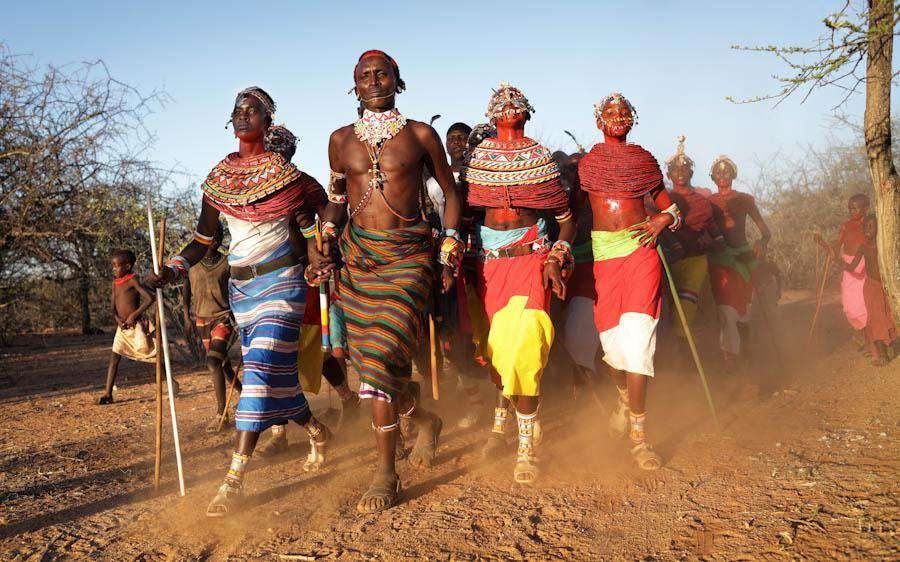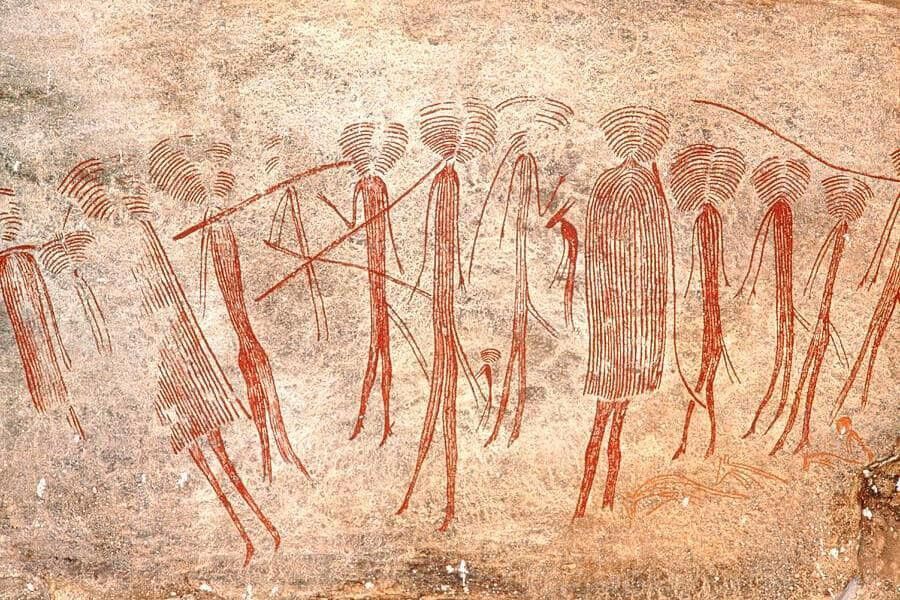Religious Harmony in Tanzania: A Tapestry of Diversity and Unity
Tanzania, a country in East Africa, stands as a remarkable example of religious harmony, where diverse faiths coexist peacefully. With Christianity, Islam, and indigenous religions all influencing Tanzanian society, the nation has achieved a unique balance that is often celebrated as a model for peaceful interfaith relationships. This article delves into the various religious communities in Tanzania, their shared cultural practices, the challenges they face, and the potential for continued collaboration for a harmonious future.
I. Introduction
A. Brief Overview of Tanzania
Tanzania, renowned for its spectacular landscapes like Mount Kilimanjaro and the Serengeti, is not only a land of natural beauty but also a country rich in cultural diversity. Its religious composition mirrors this diversity, with Christianity, Islam, and indigenous belief systems each playing a significant role in the nation’s social fabric. In a region where religious conflict often occurs, Tanzania stands out as a beacon of peaceful coexistence, demonstrating the potential for religious harmony to thrive.
B. Importance of Understanding Religious Diversity
Religious diversity is not just an academic subject in Tanzania; it is an essential part of the nation’s identity and prosperity. This article will explore how Tanzania’s religious communities work together, overcoming challenges to build a united society. Understanding this dynamic is crucial for appreciating how religious harmony has contributed to the country’s social stability and peaceful development.
II. Major Religions in Tanzania
A. Christianity in Tanzania
1. Denominations and Their Prevalence
Christianity is the largest religion in Tanzania, with both Catholics and Protestants making up the majority of the population. Catholicism, introduced by European missionaries in the 19th century, is particularly widespread in southern regions such as Mbeya and Iringa. Protestant denominations, including Lutheran, Anglican, and Pentecostal churches, are also prevalent in central and northern Tanzania. In urban areas, independent churches, especially among the youth, are growing in number and diversity.
2. Historical Roots
Christianity in Tanzania has deep roots, tracing back to European explorers in the 15th century. However, the significant spread of Christianity began in the late 19th century when missionaries arrived and set up educational institutions, healthcare, and infrastructure. Over the years, Christianity in Tanzania has been uniquely shaped by local cultures, blending traditional practices with Christian teachings.
B. Islam in Tanzania
1. Sunni and Shia Branches
Islam is the second-largest religion in Tanzania, particularly in coastal regions like Zanzibar and Dar es Salaam. The majority of Tanzanian Muslims are Sunni, but there is also a substantial Shia Muslim community, particularly among Swahili-speaking coastal populations. This diversity within Islam is essential for understanding the religious landscape of Tanzania, with both branches sharing common beliefs but also having distinct practices.
2. Influence on Tanzanian Culture
Islam has left a profound mark on Tanzanian culture, influencing architecture, music, cuisine, and daily rituals. The call to prayer, which echoes through the cities, creates a distinct rhythm in the life of Tanzanians. Additionally, Islam’s historical presence has been integral in shaping Tanzania’s culture of tolerance, as Muslim communities peacefully coexist with their Christian and indigenous neighbors.
C. Indigenous Religions in Tanzania
1. Traditional Beliefs and Practices
Indigenous religions in Tanzania are deeply intertwined with the cultural and spiritual practices of various ethnic groups. These beliefs often center on ancestor worship, reverence for nature, and rituals to maintain balance between the physical and spiritual realms. While the influence of indigenous religions has waned in urban areas, they remain vital in rural communities.
2. Role in Daily Life
Despite the dominance of Christianity and Islam, indigenous religions continue to shape the daily lives of many Tanzanians. These religions influence traditional ceremonies, healing practices, and cultural rites. In many cases, indigenous beliefs overlap with both Christian and Muslim practices, creating a dynamic spiritual environment.

III. Interfaith Relations
A. Harmony Among Religious Communities
Tanzania has long been known for the harmonious coexistence of its religious communities. This history of peaceful relations can be traced back to pre-colonial and colonial times when different religious groups learned to live side by side. In modern Tanzania, people of different faiths collaborate toward shared goals like national unity and development, setting aside their differences to focus on the collective good.
B. Shared Cultural Festivals
Religious festivals in Tanzania serve as opportunities for interfaith engagement. Major events like Eid al-Fitr, Christmas, and local traditional celebrations bring together people of different faiths in a spirit of mutual respect and participation. These shared celebrations foster unity, reduce potential conflict, and showcase Tanzania’s commitment to interfaith cooperation.
C. Interactions Between Followers
In urban centers, people of diverse religious backgrounds routinely work, study, and socialize together. These interactions are crucial in reinforcing the idea that religious identity does not create barriers to social harmony. The respect and understanding cultivated through daily interactions contribute to Tanzania’s peaceful, diverse society.

IV. Challenges and Opportunities
A. Religious Tensions
While Tanzania enjoys a generally peaceful coexistence, religious tensions can occasionally arise, particularly during politically charged moments such as elections. Competition for power and resources can sometimes be exacerbated by religious divides. However, these tensions are usually short-lived and addressed through dialogue and reconciliation, which remain vital for maintaining long-term peace.
B. Government Initiatives for Religious Harmony
The Tanzanian government actively promotes religious harmony through policies that protect religious freedom and encourage interfaith dialogue. Community projects that involve leaders from various religious groups have been successful in bridging divides and fostering a culture of cooperation.
C. Opportunities for Interfaith Collaboration
Tanzania presents numerous opportunities for interfaith collaboration, particularly in addressing social challenges like poverty, healthcare, and education. By focusing on shared goals, religious communities can work together to bring about positive social change, while interfaith dialogue also serves to reduce extremism and encourage broader societal acceptance.

V. Impact on Tanzanian Society
A. Educational Institutions
Religious diversity is integrated into Tanzania’s educational system, where students of various faiths are encouraged to respect and understand each other’s beliefs. Schools often offer interfaith programs and activities, promoting an environment where tolerance and cooperation are central to the learning experience.
B. Political Landscape
Religion plays an important role in Tanzania’s political landscape, with political leaders often using their religious backgrounds to connect with voters. By prioritizing religious freedom and ensuring representation for all faith groups, Tanzania avoids the political polarization seen in many other countries, fostering a more inclusive political environment.
C. Social Cohesion
Tanzania’s commitment to religious harmony has contributed significantly to social cohesion. By encouraging cooperation between different religious communities, the country has fostered a sense of unity that transcends religious divisions, contributing to its stability and growth.

VI. Case Studies
A. Examples of Successful Interfaith Initiatives
The Interfaith Council of Tanzania is a prime example of successful interfaith collaboration. This initiative brings together leaders from Christianity, Islam, and indigenous faiths to address social issues and promote peace. It has been instrumental in reducing tensions and fostering cooperation across religious divides.
B. Instances of Religious Diversity Positively Impacting Communities
In rural Tanzania, Christian and Muslim communities often collaborate on community development projects such as building schools and providing healthcare. These initiatives show that religious diversity can be a powerful force for social good and collective action.

VII. Conclusion
A. Recap of the Significance of Religious Diversity in Tanzania
Tanzania’s religious diversity is not just a part of its identity—it is a cornerstone of its strength and stability. The peaceful coexistence of Christianity, Islam, and indigenous beliefs fosters mutual respect, understanding, and collaboration, making Tanzania a model for other nations.
B. Encouragement for Continued Understanding and Collaboration
As Tanzania continues to grow, it is essential to promote further interfaith dialogue and cooperation. By embracing its religious diversity, Tanzania can maintain its status as a beacon of peace and unity in a world often marked by religious conflict.
Frequently Asked Questions
How does religious diversity contribute to Tanzania’s cultural identity?
Religious diversity enriches Tanzania’s cultural identity by blending various traditions, customs, and celebrations, creating a unique national culture built on unity in diversity.
Are there specific government policies addressing religious harmony in Tanzania?
Yes, the Tanzanian government has implemented policies that promote religious tolerance, equality, and interfaith dialogue, ensuring peaceful coexistence.
What role do educational institutions play in promoting religious tolerance?
Tanzanian educational institutions promote tolerance by offering diverse perspectives, fostering respect for different faiths, and encouraging interfaith collaboration.
Can you provide examples of interfaith initiatives that have had a significant impact?
Initiatives like the Interfaith Council of Tanzania and joint community projects in rural areas have proven successful in bridging religious divides and fostering unity.
How do religious beliefs influence the political landscape in Tanzania?
Religious beliefs influence Tanzania’s political landscape by shaping policies that respect religious freedom and ensure that all faith communities are represented.

